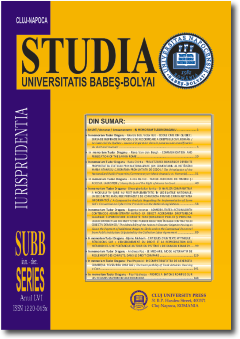CIVIL-LAW ANTECEDENTS OF THE REGULATION OF POLYGYNY IN SOUTH AFRICAN LAW
CIVIL-LAW ANTECEDENTS OF THE REGULATION OF POLYGYNY IN SOUTH AFRICAN LAW
Author(s): Gardiol J. Van NiekerkSubject(s): Law, Constitution, Jurisprudence
Published by: Studia Universitatis Babes-Bolyai
Keywords: Monogamy; polygamy; polygyny; polyandry; bigamy; praecepta iuris; honeste vivere; chastity; boni mores; equality of spouses; Roman law; Roman-Dutch law; African customary marriage; Muslim marriage.
Summary/Abstract: In South Africa, the preference for monogamy is founded on the South African legal system’s civil-law tradition. Attitudes that potentially polygynous African customary and Muslim marriages were contra bonos mores and uncivilised should not merely be ascribed to colonial policies and political ideology, often based on Christian doctrine. The rejection of polygyny in Roman society was continued in Roman-Dutch law and reflected in the comments of the Roman-Dutch institutional writers. In this article I trace the historical antecedents of the rejection of polygyny in the civil-law foundations of South African law.
Journal: Studia Universitatis Babes Bolyai - Iurisprudentia
- Issue Year: 61/2016
- Issue No: 4
- Page Range: 131-150
- Page Count: 20
- Language: English

